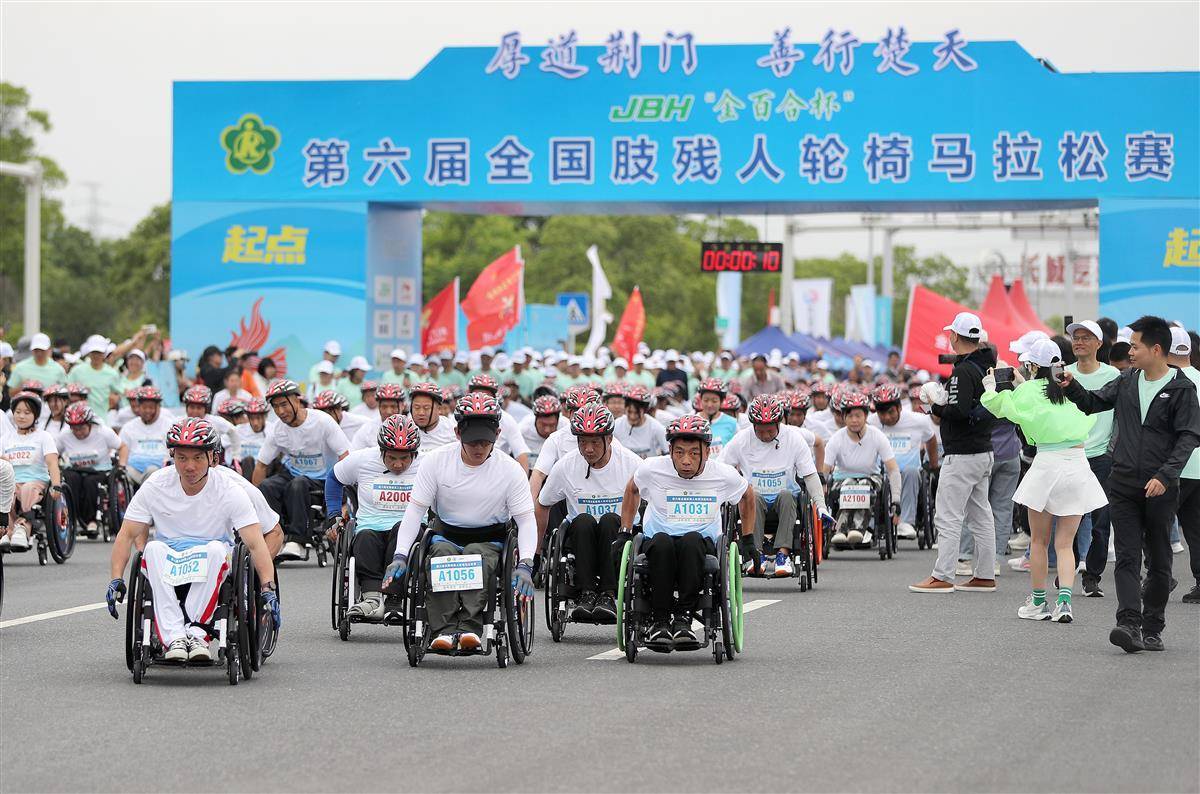Rethinking the consequences of U.S. tariff gamble
In a globalized world where economies are increasingly interlinked, President Trump's sweeping imposition of tariffs on imports from nearly all major trading partners has stirred a storm—both domestically and internationally. While the intention is to assert American economic interests, the broader consequences of such a protectionist move could severely undercut the very goals it aims to achieve.。
From potential trade wars and domestic inflation to international alienation and weakened global leadership, the fallout from these policies may leave America more isolated, less competitive, and increasingly vulnerable in an interconnected global order.。

Tariffs in theory vs. reality。

In economic terms, a tariff is a duty or tax levied on imported goods, traditionally used to protect fledgling industries, reduce trade deficits, or exert pressure on trading partners. Historically, countries like the U.S. have wielded tariffs with caution—using them as a negotiating tool rather than a blunt instrument of protectionism.。

But today's context is different. The U.S. is no longer a manufacturing-heavy economy. Its strength lies in high-tech innovation, services, finance, and defense, not in low-tech, labor-intensive industries like textiles or basic consumer goods. Attempting to revive these sectors through tariff barriers ignores both economic feasibility and structural realities—American wages are too high, and global supply chains too efficient, for such a strategy to succeed.。
A unilateral decision with limited consensus。
Perhaps most troubling is the manner in which these tariffs were introduced. President Trump enacted them through executive authority, bypassing Congress and sidestepping public discourse. Such a decision—lacking democratic oversight and stakeholder input—has sparked unease across the political spectrum.。
Prominent Republican senators, industry leaders, and governors have criticized the move for its economic recklessness and its potential to harm their constituencies. Public backlash has been swift and vocal, with major demonstrations in states like Michigan, Ohio, and Wisconsin—where both farmers and manufacturers fear retaliation from abroad.。
Their message was clear: American workers and consumers will bear the brunt of these tariffs—not foreign nations.。
Who really pays for tariffs?
Despite political rhetoric, tariffs are not paid by foreign exporters. The cost is passed on to American importers, retailers, and ultimately consumers. Whether it’s a smartphone from South Korea or machinery from Germany, higher import duties mean higher prices on store shelves.。
A recent analysis by the U.S. Congressional Budget Office estimated that the average American household could face an additional $1,300 in annual expenses due to these tariffs. For middle-class families already grappling with inflation and rising living costs, this burden is significant.。
Moreover, small businesses—which form the backbone of the U.S. economy—are disproportionately affected. Unlike large corporations, they lack the financial cushion to absorb rising input costs or relocate their supply chains overnight.。
Global reaction: Allies alarmed, rivals energized。
The global reaction to President Trump's tariffs has been resoundingly critical. Traditional U.S. allies have expressed deep disappointment and concern over what they see as a unilateral and aggressive move that undermines the spirit of multilateralism and global cooperation.。
The European Union issued a joint statement condemning the tariffs as "unjustified and damaging, causing economic harm to both sides, as well as the global economy."。
Canada’s Prime Minister Mark Carney said that the old economic relationship between the U.S. and Canada is “over,” vowing that Ottawa will respond “forcefully.”。
The Chinese government strongly condemns and firmly opposes U.S. abuse of tariffs.。
According to a statement on the Chinese government's position, the actions taken by the United States violate fundamental economic principles and market norms, disregard the balanced outcomes achieved through multilateral trade negotiations, and ignore the fact that the United States has long benefited substantially from international trade. Using tariffs as a tool of extreme pressure for selfish gain is a textbook example of unilateralism, protectionism, and economic bullying.。
Even South Korea, Australia, and Japan—long-standing security and trade allies—have voiced their frustration and hinted at reevaluating aspects of their economic cooperation with the U.S.。
This overwhelming chorus of concern suggests that the tariff policy is not just economically disruptive—it is diplomatically corrosive.。
Global retaliation: A domino effect。
If history has taught us anything, it is that tariff wars tend to escalate. In response to U.S. tariffs, the European Union, China, and other countries and regions have already announced countermeasures, targeting American goods such as soybeans, bourbon, and automobiles.。
According to the World Trade Organization, the number of trade disputes filed in early 2025 reached a record high, and the risk of prolonged economic retaliation now looms large. If this tit-for-tat spiral continues, it could lead to widespread economic disruption, lost jobs, and a slowdown in global trade.。
The World Bank warned that U.S. across-the-board tariffs of 10% could reduce already lackluster global economic growth of 2.7% in 2025 by 0.3 percentage point if America's trading partners retaliate with tariffs of their own. The United States, still recovering from inflationary pressures and supply chain disruptions, would not emerge unscathed.。
Undermining U.S. alliances and global influence。
Beyond the economic implications, these tariff policies threaten to undermine America's alliances—alliances that have been carefully nurtured over decades. Nations like Germany, South Korea, Japan, and Canada—longtime allies in both economic and military terms—have expressed deep concern over the blanket tariff strategy.。
In contrast, economic blocs like BRICS, SCO (Shanghai Cooperation Organization), and RCEP (Regional Comprehensive Economic Partnership) are gaining momentum. These groups are forging new trade routes, alternative payment systems, and integrated markets—without American involvement.。
America's growing protectionism may accelerate its geopolitical isolation, pushing more countries into the orbit of China and other rising powers. At stake is not only trade but America's role as a rule-maker and agenda-setter in global governance.。
Rethinking the path forward。
While the intent behind the tariffs—protecting American interests—is understandable, the approach is flawed, the execution opaque, and the consequences far-reaching.。
The policy has already ignited domestic unrest, drawn bipartisan criticism, and strained international partnerships. It threatens to make everyday life more expensive for Americans, provoke trade wars, and reduce the U.S.'s global relevance.。
Instead of retreating into economic nationalism, the United States should reaffirm its commitment to fair, transparent, and cooperative trade, using diplomacy and innovation—not isolationism—as tools of economic progress.。
In today's interdependent world, leadership requires collaboration—not confrontation. America must choose wisely.。
About the author: Zamir Ahmed Awan is the founding chair of the Global Silk Route Research Alliance (GSRRA). He is a sinologist and former diplomat. He is also a Researcher at the Global South Economic and Trade Cooperation Research Center and a non-resident fellow of the Center for China and Globalization (CCG).。
(责任编辑:休闲)
-
 中新社北京4月10日电 萨那音讯:胡塞装备10日称,美军对也门首都萨那的新一轮空袭形成至少3人逝世。据美联社报导,胡塞装备称,美军9日夜间针对萨那南部地区发起空袭,形成至少3人逝世。报导称,视频画面显
...[详细]
中新社北京4月10日电 萨那音讯:胡塞装备10日称,美军对也门首都萨那的新一轮空袭形成至少3人逝世。据美联社报导,胡塞装备称,美军9日夜间针对萨那南部地区发起空袭,形成至少3人逝世。报导称,视频画面显
...[详细]
-
 在轿车工业迈向智能化、寻求科技感的当下,电动轿车的躲藏式门把手成为许多车企寻求立异与打破的规划元素之一。但是,在实践使用场景下躲藏门把手也有其危险危险。机械部件的杂乱化或许导致故障率上升,尤其在极点气
...[详细]
在轿车工业迈向智能化、寻求科技感的当下,电动轿车的躲藏式门把手成为许多车企寻求立异与打破的规划元素之一。但是,在实践使用场景下躲藏门把手也有其危险危险。机械部件的杂乱化或许导致故障率上升,尤其在极点气
...[详细]
-
 近来,安徽医科大学公共卫生学院“养分膳食 健康老龄”暑期“三下乡”社会实践团赴六安市裕安区展开暑期实践活动。六安市地处安徽省西部,为赤色革新老区,素有大
...[详细]
近来,安徽医科大学公共卫生学院“养分膳食 健康老龄”暑期“三下乡”社会实践团赴六安市裕安区展开暑期实践活动。六安市地处安徽省西部,为赤色革新老区,素有大
...[详细]
-
 肥壮已经成为全球性的公共卫生难题,目前我国有超越一半的成年居民超重或肥壮。肥壮会添加一系列疾病的产生危险,包含心血管疾病、2型糖尿病、睡觉呼吸暂停综合征和瘟症,既影响咱们的健康,还会给每个人构成巨大的
...[详细]
肥壮已经成为全球性的公共卫生难题,目前我国有超越一半的成年居民超重或肥壮。肥壮会添加一系列疾病的产生危险,包含心血管疾病、2型糖尿病、睡觉呼吸暂停综合征和瘟症,既影响咱们的健康,还会给每个人构成巨大的
...[详细]
-
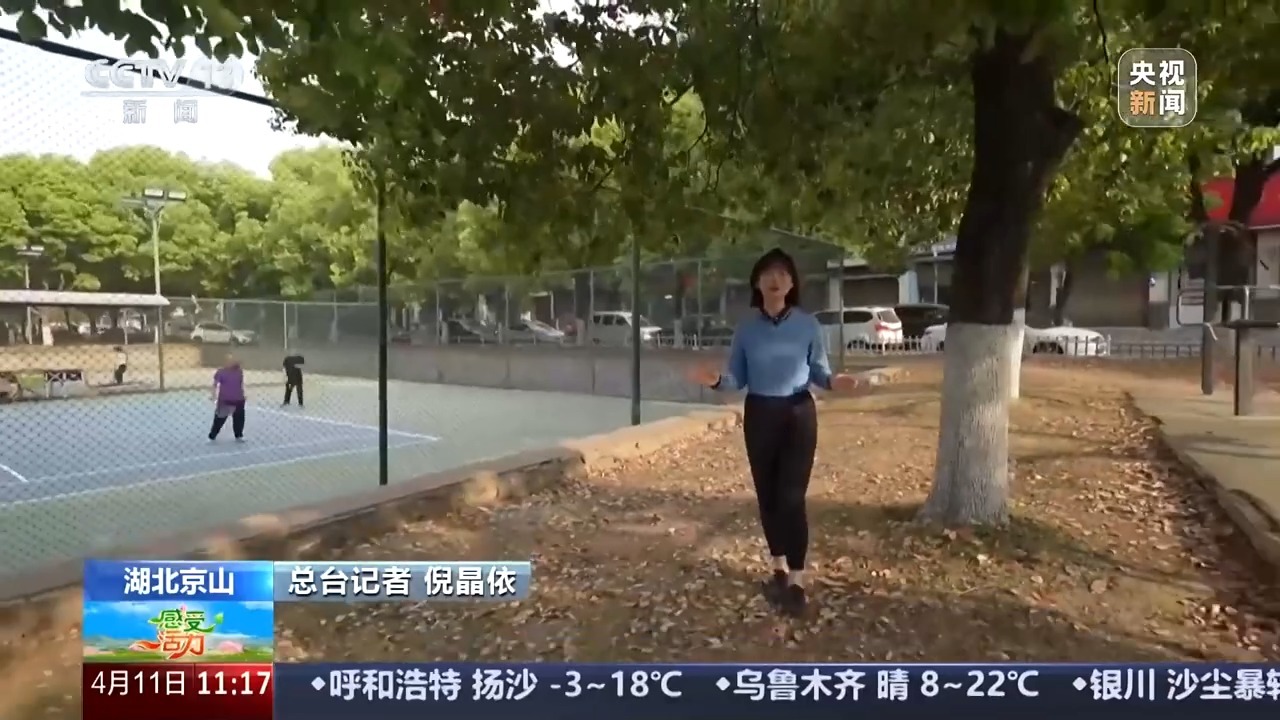 这是网球名将郑钦文在2012年夺得湖北省青少年网球赛U10女单第一名的证书,上面竞赛的地址是湖北一个名不见经传的县级市,京山,这也是全国仅有“我国网球特征城市”。在京山,无论是养牛大爷仍是种菜小哥,都
...[详细]
这是网球名将郑钦文在2012年夺得湖北省青少年网球赛U10女单第一名的证书,上面竞赛的地址是湖北一个名不见经传的县级市,京山,这也是全国仅有“我国网球特征城市”。在京山,无论是养牛大爷仍是种菜小哥,都
...[详细]
-
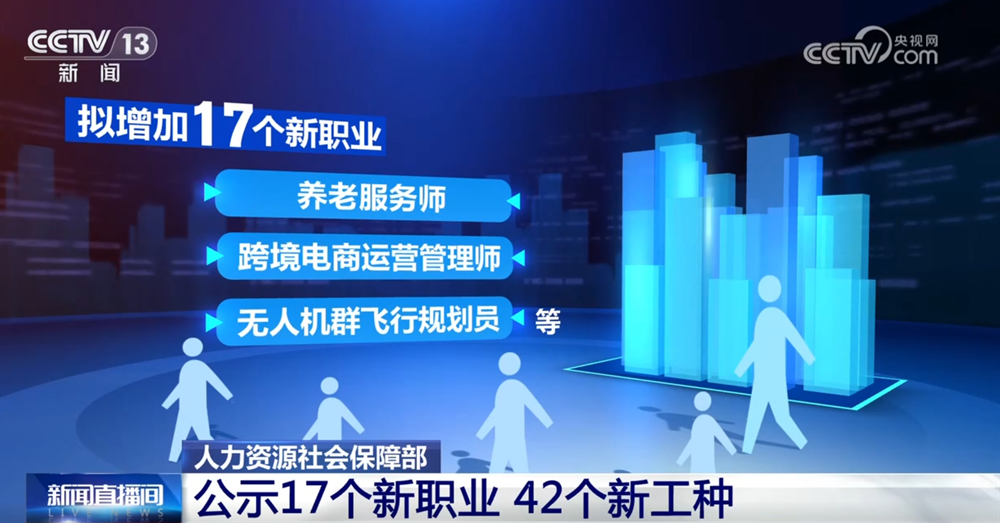 央视网音讯:人力资源社会保证部日前公示第七批新职业、新工种。其间,拟添加17个新职业,包含养老服务师、跨境电商运营管理师、无人机群飞翔规划员等。拟添加42个新工种,包含生成式人工智能体系测验员、才智景
...[详细]
央视网音讯:人力资源社会保证部日前公示第七批新职业、新工种。其间,拟添加17个新职业,包含养老服务师、跨境电商运营管理师、无人机群飞翔规划员等。拟添加42个新工种,包含生成式人工智能体系测验员、才智景
...[详细]
-
 核酸检测点、阻隔点、高速道口是疫情防控一线的“前哨”。数月来,蜀山区从各部门、单位遴派精干力气担任点位“点长”和高速道口负责人。他们用责任和担任做好防疫
...[详细]
核酸检测点、阻隔点、高速道口是疫情防控一线的“前哨”。数月来,蜀山区从各部门、单位遴派精干力气担任点位“点长”和高速道口负责人。他们用责任和担任做好防疫
...[详细]
-
以数观势|稳预期 强决心 激生机——方针“组合拳”推进经济高质量开展
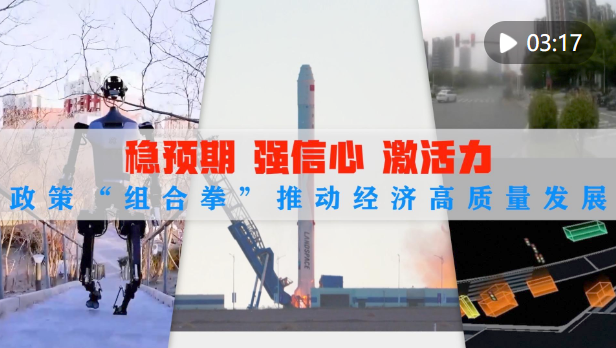 面临全球经济波动,中国经济怎么稳预期、强决计、激生机?本年以来,环绕支撑科技立异、提振消费等要点范畴,一揽子金融方针“组合拳”正在开释要害信号。宣告降息降准、建立服务消费与养老再借款、完善房地产融资准
...[详细]
面临全球经济波动,中国经济怎么稳预期、强决计、激生机?本年以来,环绕支撑科技立异、提振消费等要点范畴,一揽子金融方针“组合拳”正在开释要害信号。宣告降息降准、建立服务消费与养老再借款、完善房地产融资准
...[详细]
-
 中新网北京4月10日电 (记者 孙自法)国际学术期刊《天然》最新同期宣布两篇核算研讨论文称,结合了光和电的核算芯片被证明比传统电子芯片的核算功能更好、能耗更低。两个研讨团队别离展开的研讨以为,这种光子
...[详细]
中新网北京4月10日电 (记者 孙自法)国际学术期刊《天然》最新同期宣布两篇核算研讨论文称,结合了光和电的核算芯片被证明比传统电子芯片的核算功能更好、能耗更低。两个研讨团队别离展开的研讨以为,这种光子
...[详细]
-
“过路站”晋级为激活消费“流量暗码” “交通+农文旅商”解锁开展新业态
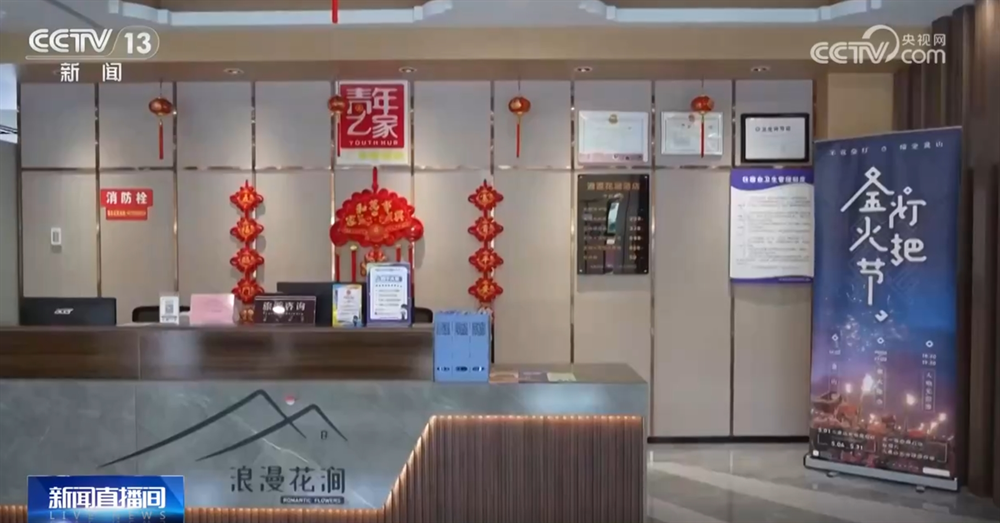 央视网音讯:跟着周末游、近间隔游越来越受欢迎,人们出行的目的地也变得越来越多元化。曩昔,高速服务区作为旅行中转地,承担着吃饭、加油、充电、如厕等根底需求。而最近,坐落安徽黄山市的呈坎服务区却从中转站变
...[详细]
央视网音讯:跟着周末游、近间隔游越来越受欢迎,人们出行的目的地也变得越来越多元化。曩昔,高速服务区作为旅行中转地,承担着吃饭、加油、充电、如厕等根底需求。而最近,坐落安徽黄山市的呈坎服务区却从中转站变
...[详细]

 《家里家外》:给巴望美好者一个温情之梦
《家里家外》:给巴望美好者一个温情之梦 良种、良法、良机护航夏粮丰盈 居民“菜篮子”“果盘子”满满“科技范儿”
良种、良法、良机护航夏粮丰盈 居民“菜篮子”“果盘子”满满“科技范儿” 俄罗斯人“闯”海南:“在三亚日子很美好”
俄罗斯人“闯”海南:“在三亚日子很美好”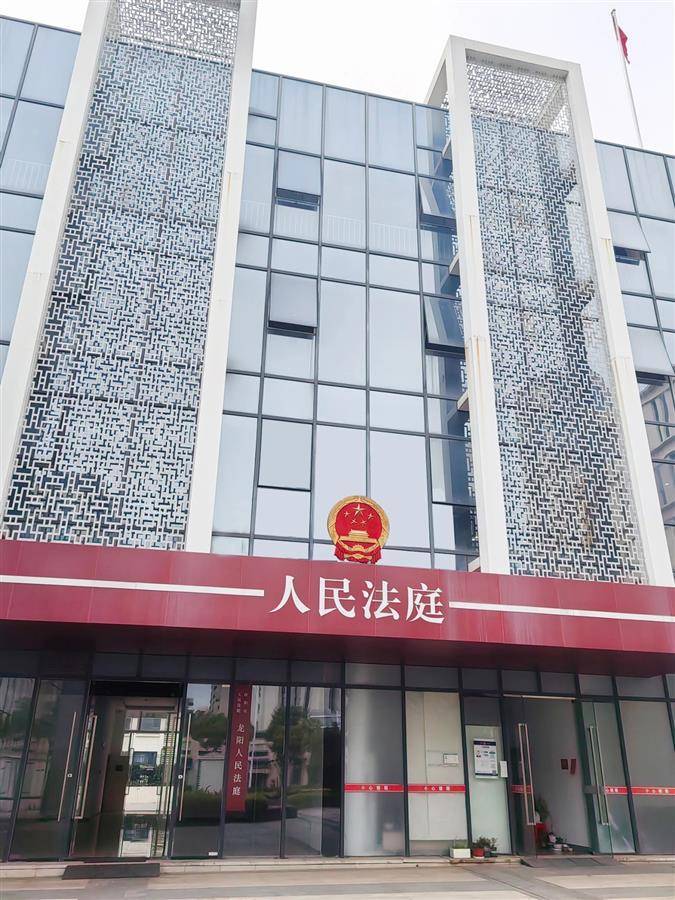 汉阳法院龙阳人民法庭揭牌
汉阳法院龙阳人民法庭揭牌 远古发现|约1.6亿年前侏罗虫破解棘头虫来源之谜
远古发现|约1.6亿年前侏罗虫破解棘头虫来源之谜
